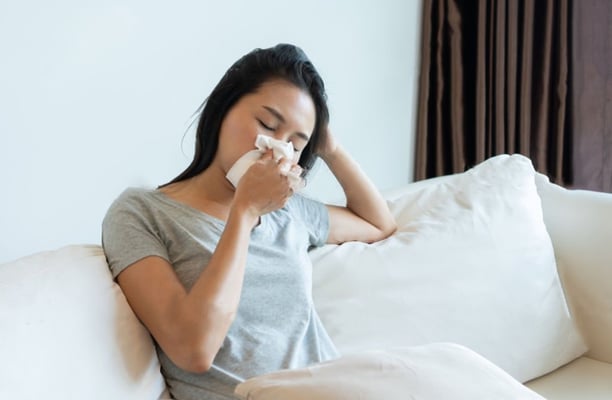

Flu, Covid, Strep
Not feeling well?
Are you feeling sick or been exposed to someone who has?
VitaLink offers testing kits and treatment directly to your door.
Our providers will prescribe necessary test and treatments for you and ensure you get better.
VitaLink has got you covered!
COVID-19
COVID-19 is an illness that infects the lungs. You may hear it called COVID or coronavirus disease 2019. It's caused by a type of coronavirus. The virus is called SARS-CoV-2. They are a common cause of colds and bronchitis. They can cause a lung infection called pneumonia. Symptoms can range from mild to severe. Some people have no symptoms.
The virus spreads and infects people easily. It can infect a person more easily if they are not immune to it. The virus most often spreads through droplets of fluid that a person coughs or sneezes into the air. In some cases, you can get it from touching a surface with the virus on it and then touching your eyes, nose, or mouth.
What are the symptoms of COVID-19?
Some people have no symptoms. Some have mild symptoms. Others may have severe symptoms. This varies from person to person. Symptoms may start 2 to 14 days after contact with the virus. They can include:
• Fever
• Chills
• Coughing
• Trouble breathing or feeling short of breath
• Sore throat
• Stuffy or runny nose
• Headache
• Body aches
• Tiredness
• Nausea, vomiting, diarrhea, or belly pain
• New loss of sense of smell or taste
How is COVID-19 diagnosed?
Your healthcare provider will ask:
• What symptoms you have
• If you've had recent close contact with someone known to have COVID-19
• Where you live
• If you’ve traveled recently
• If you’ve had contact with sick people
• If you are vaccinated against COVID-19
• If you have had COVID-19
How is COVID-19 treated?
The best treatments right now are those to help your body while it fights the virus. This is called supportive care. It includes:
Talk with your provider if you have confirmed COVID-19. You may qualify for medicines approved by the FDA to prevent severe COVID-19 infection.
• Paxlovid, Antiviral medicines. Antivirals stop the SARS-CoV-2 virus from spreading in the body. The FDA has approved certain antiviral medicines to treat mild to moderate COVID-19 in people who are more likely to get very sick. These treatments are not available for everyone. Talk with your provider to learn more.
Pharyngitis: Strep Throat
You have had a positive test for strep throat. Strep throat is a bacterial infection that can be spread to others. It's spread by coughing, kissing, sharing glasses or eating utensils, or by touching others after touching your mouth or nose. Symptoms include:
• Throat pain that's worse when you swallow
• Aching all over
• Headache
• Swollen lymph nodes at the front of the neck
• Red, swollen tonsils that may have white patches
• Fever
It's treated with antibiotic medicine.
The Flu (Influenza)
The flu (influenza) is an infection caused by a virus. It affects your respiratory tract. The respiratory tract is made up of your mouth, nose, and lungs, and the passages between them. Unlike a cold, the flu can make you very ill. It may lead to a serious lung infection called pneumonia. The flu can cause serious problems and even cause death.
Flu viruses, COVID-19, and RSV viruses are likely to spread during flu season.
Viruses that cause influenza spread through the air in droplets when someone who has the flu coughs, sneezes, laughs, or talks.
What are the symptoms of the flu?
Flu symptoms tend to start quickly. They may last a few days to a few weeks. They include:
• Fever usually higher than 100.4° F ( 38°C ) and chills
• Sore throat and headache
• Dry cough
• Runny nose
• Tiredness and weakness
• Muscle aches
• Headaches
• Vomiting and diarrhea
How is the flu treated?
The flu usually gets better after 7 days or so. In some cases, your healthcare provider may prescribe an antiviral medicine. It may help you get well sooner. It may reduce the risk for and severity of complications. For the medicine to help, you need to take it as soon as possible after your symptoms start. The best time is to take it within 48 hours.


